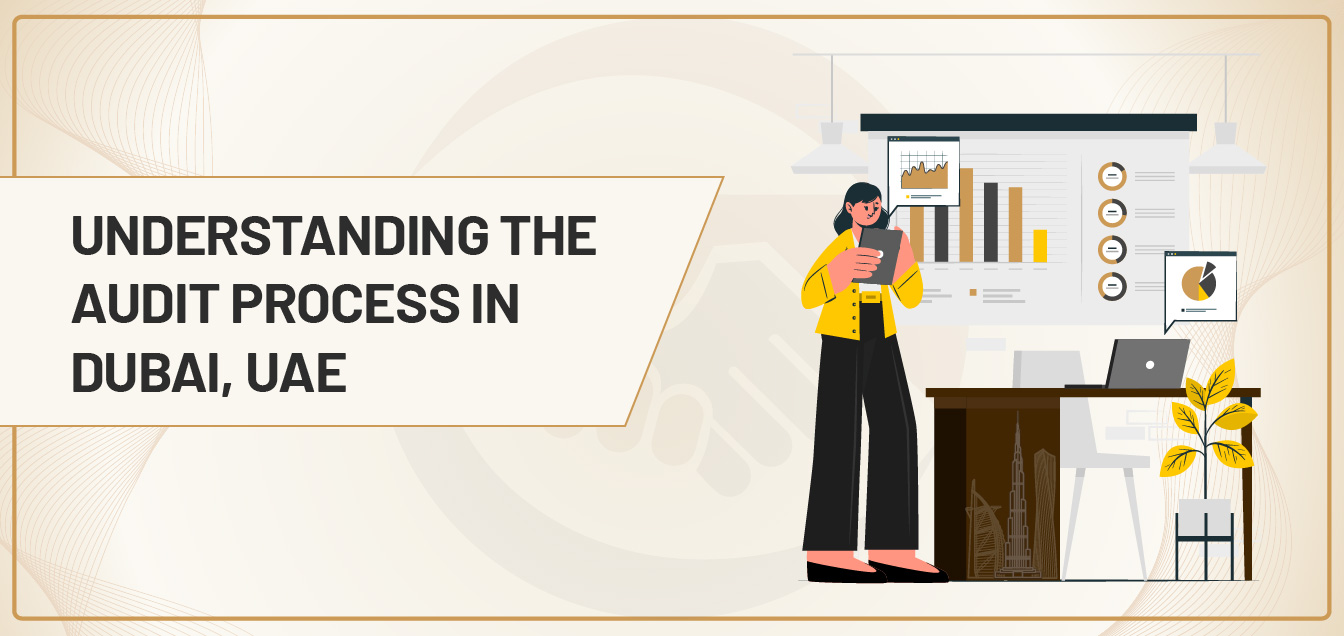
15 Nov 2024
Understanding the Audit Process in Dubai, UAE
The Dubai audit process is critical in ensuring businesses comply with the UAE audit regulations and maintain financial transparency. Auditing in Dubai is mandatory for many companies and is essential for businesses that want to uphold investor confidence, adhere to local laws, and ensure long-term sustainability. In this blog, we will explore the audit procedures in Dubai, highlighting the importance of audits, the types of audits available, and the steps involved in the Dubai audit process.
The Importance of Audits in Dubai
Audits are about more than just checking the accuracy of financial records. They help companies identify inefficiencies, mitigate risks, and enhance internal controls. By adhering to UAE audit regulations, businesses can demonstrate transparency, instil confidence in stakeholders, and avoid legal complications. Whether it’s an internal audit UAE or an external audit Dubai, ensuring compliance with local laws is key to maintaining credibility in the market.
Key Audit Procedures in Dubai
Understanding the steps in the Dubai audit process is essential for businesses. The typical audit process includes the following stages:
1. Audit Planning Dubai
In the planning phase, the auditor will determine the scope of the audit, define the objectives, and assess the risks. This step is crucial as it helps auditors understand the business environment and potential challenges. Audit planning Dubai involves gathering information about the company's operations, identifying key financial areas, and setting the groundwork for fieldwork. Proper planning ensures the audit is conducted efficiently and effectively.
2. Fieldwork and Testing
After planning, auditors move on to fieldwork, which involves testing the accuracy of the company’s financial records and internal controls. Auditors may conduct interviews, inspect documents, and perform walkthroughs of the processes. This phase is critical to ensure the company adheres to Dubai auditing standards and other UAE audit guidelines.
3. Documentation
During the fieldwork, auditors collect substantial evidence to support their findings. This includes reviewing contracts, financial statements, and other relevant documents. In the corporate audit Dubai process, evidence collection helps auditors validate that the company’s financial information is accurate and free from material misstatements.
4. Audit Reporting
Once the fieldwork is complete, the auditors compile their findings into a detailed report. This report outlines any discrepancies, inefficiencies, or issues found during the audit. It also includes recommendations for improvement. The audit report is essential for businesses to take corrective actions and align themselves with UAE audit regulations.
5. Follow-up and Review
Businesses must address any issues or recommendations outlined in the audit report post-audit. The follow-up process ensures that corrective actions are implemented effectively. Regular follow-ups are necessary to maintain compliance with UAE audit guidelines and ensure the business operates efficiently.
Audit Requirements Dubai: What You Need to Know
Businesses in Dubai must comply with strict audit requirements Dubai, which vary depending on the type of company and its size. According to UAE audit guidelines, companies registered in free zones, onshore or offshore, must undergo an annual audit. Additionally, specific sectors like banking and finance have more stringent audit requirements.
Compliance with Dubai Auditing Standards
Adhering to Dubai auditing standards is essential for every business undergoing an audit. These standards align with International Financial Reporting Standards (IFRS), ensuring financial statements are prepared accurately and transparently. By complying with these standards, businesses can avoid penalties and maintain their reputation in the marketplace.
Why Are Audits Essential for Businesses in Dubai?
Audits provide several benefits, including:
? Enhanced Transparency: A thorough audit ensures a company’s financial statements are transparent, providing stakeholders with an accurate picture of its financial health.
? Risk Mitigation: Audits identify risk areas within the company, allowing businesses to take proactive steps to mitigate potential problems.
? Compliance with Laws: Regular audits help businesses comply with UAE audit regulations and other legal requirements.
? Boosting Stakeholder Confidence: Audited financial statements build trust with investors, customers, and other stakeholders, showing that the company is financially sound and well-governed.
Choosing the Right Audit Firms in UAE
Selecting the right audit firm is critical to ensure your business complies with local laws and maintains financial integrity. Top audit firms in UAE offer various services, including internal audit UAE, external audit Dubai, and compliance audits. When choosing an audit firm, look for experienced professionals who understand the intricacies of the Dubai audit process and can help guide your business through the various audit steps.
How AMCA Can Help with Your Audit Process
Auditing is a vital process for any business operating in Dubai. It ensures compliance, builds transparency and strengthens stakeholder confidence. If you're looking for expert guidance on your audit, AMCA can help. As one of the leading audit firms in UAE, we offer a full range of UAE audit services, including financial audit Dubai, internal audit UAE, and Dubai compliance audit. Our experienced auditors are well-versed in the Dubai audit process and will guide you through every step, from audit planning Dubai to the final report.
At AMCA, we ensure that your business complies with all relevant UAE audit regulations while providing insights that help improve operational efficiency. Contact us today to learn how we can assist you with your audit needs.
Reach out to AMCA for expert assistance with your corporate audit and ensure your business is on the right track for compliance and success. Let us help you navigate the complexities of the Dubai audit process and keep your company in good standing with the authorities.
Read More: Streamlining Bookkeeping in the UAE with IFRS Standards
Read More: Top 8 Audit Firms in Dubai
Read More: Bookkeeping Tips for Startups to Maintain Positive Cash Flow
Read More: The Essential DIFC List of Auditors: Ensuring Financial Transparency and Compliance


.jpg)

.jpg)